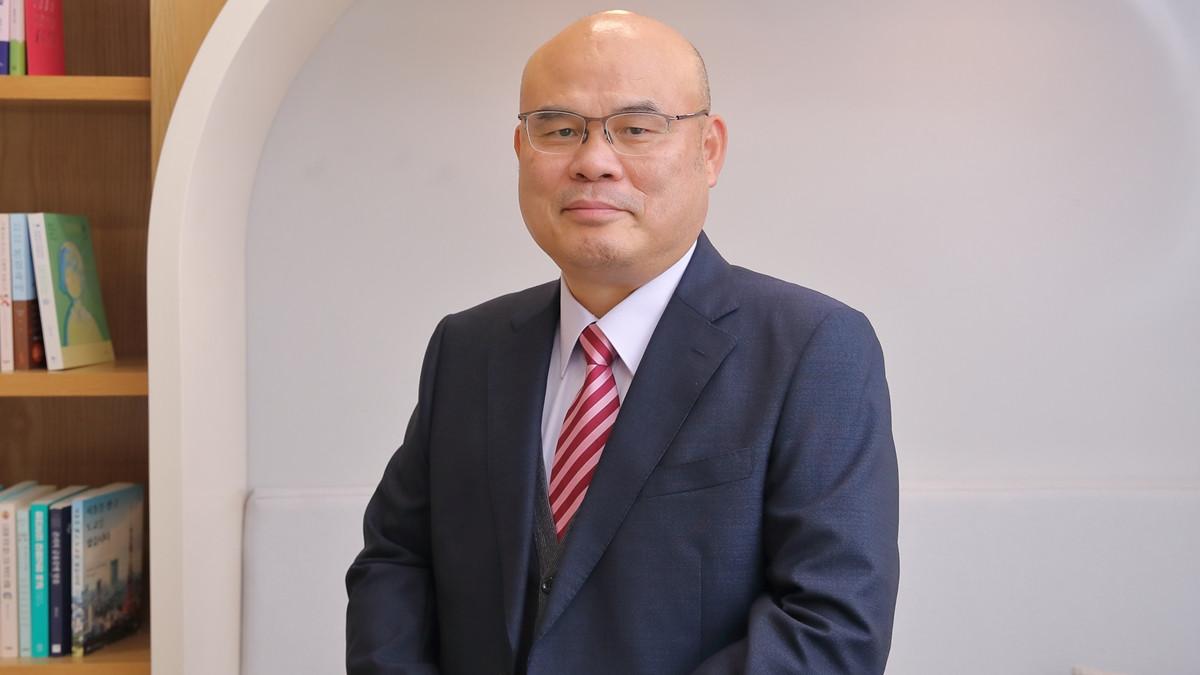LG Display, a leading innovator of display technologies, recently presented innovations optimised for the AI age alongside its vision for the future at IMID 2025, the largest academic display conference in Korea.
The International Meeting on Information Display (IMID), hosted by the Korean Information Display Society (KIDS), brings together more than 2,000 display experts annually. IMID 2025 was held at BEXCO in Busan for three days from 20 August.
Displays as a cognitive interface
At the opening ceremony, Choi Hyun-chul, Executive Vice President at LG Display, delivered a keynote speech under the title of “Beyond Screen: Display as Cognitive Interface,” outlining the company’s future vision of displays whose role has grown in the age of AI.
“With the advancement of AI, the display has become a cognitive interface – a window where humans and AI meet and communicate,” Choi said. He presented the direction of display technology, form, and evolution that will lead AI innovation, including the evolution of the user interface, the evolution of the spatial structure, and the sustainability of AI.
First, introducing the evolution of the user interface, he explained that there is a growing need for displays that can accurately express human intentions and emotions when it comes to AI, emphasising that OLED is the most optimised technology for this purpose.
“As AI evolves to understand human behaviour, displays will move beyond simply showing information,” he said. “In the future, when AI recognises our intentions and emotions, what matters then is how precisely displays can express them.”
Optimising OLED designs
Choi emphasised that high brightness, high resolution, and high colour accuracy technology is needed to deliver brighter, clearer, and more accurate colour expression. “To achieve this, it is necessary to not only continue developing optical structures for light extraction but also to optimise OLED designs as we have seen with third- and fourth-generation OLED and layered structures such as Tandem OLED.”
He then highlighted the evolution of the spatial structure of displays. He cited “form-factor-free” examples such as Slidable OLEDs and Stretchable displays, and mentioned 3D, augmented reality (AR), virtual reality (VR), transparent, and hologram displays as “technologies that have evolved to offer deeper visual depth and multidimensionality.”
Slidable OLEDs are displays that are as thin as paper and can be hidden in narrow spaces such as car ceilings. With their bright and clear screens, they enable movie viewing and video conferencing, greatly reducing time and space limitations.
Stretchable displays are the ultimate in free-form screens that can be freely transformed into any shape, including by stretching, folding, or twisting them. LG Display unveiled a Stretchable display with the industry’s highest screen elongation rate (approximately 50%) in November last year.
Finally, Choi explained the conditions for the sustainability of AI. He said that technology is needed to selectively show content to intended users in order to protect privacy. In this regard, he introduced Switchable Privacy Mode (SPM), a field of view control technology that detects the line of sight of people nearby and displays information only to necessary users.
He also insisted that “AI devices inevitably require increased power consumption for real-time responses,” adding that “displays are the most critical component for power efficiency.”
Eco-conscious technology
In addition, he emphasised the importance of eco-conscious technology, as LG Display has been implementing various activities such as carbon reduction and water reuse. As a result, the company has this year been awarded a “Platinum” rating by global ESG evaluation agency EcoVadis, which means it is in the top 1% for ESG management.
Choi concluded his speech by saying, “In the AI age, OLED is the most suitable display for accurately implementing users’ intentions in various forms according to context and considering the sustainability of technological evolution.” He added, “OLED will be a turning point that leads the innovation and expansion of the display industry along with the growth of AI.”
Meanwhile, LG Display set up a special exhibition hall for IMID visitors to experience its 18-inch Slidable OLED for vehicles, Stretchable display, 83-inch fourth-generation OLED TV panel selected as “Display of the Year” at the conference, and Gaming OLEDs.
The company additionally presented 23 research papers on OLED and next-generation displays during the event, emphasising its differentiated technological leadership.


